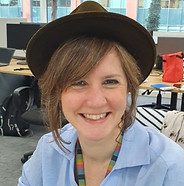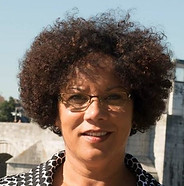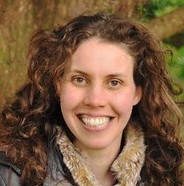Key themes
The Mobility Hubs 2025 conference will address themes such as:
Policy, Planning & Delivery
-
Planning and funding mobility hub networks
-
Integrating mobility hubs into local transport strategies
-
Designing consistent, flexible, and scalable hub models
-
Working with communities and artists to create a sense of place
Types of hubs
-
Urban, rural, and regional mobility hubs
-
Mobility hubs in new and existing residential developments
-
Workplace and campus mobility hubs
-
Repurposing car parks and rethinking park & ride
-
Modular and small-scale rural hubs
Integrated services
-
Connecting hubs with public and active transport
-
Delivering shared mobility (e-bikes, scooters, car clubs)
-
Providing EV charging infrastructure
-
Supporting last-mile logistics and parcel services
-
Managing the kerbside and public realm effectively
Operations & commercial models
-
Partnering with developers, operators and the private sector
-
Governance and ownership models for sustainable hubs
-
Creating commercially viable and user-friendly services
-
Futureproofing hubs through data, tech and innovation


Who will be attending
-
Local authorities
-
Property companies
-
Car club operators
-
Micromobility specialists
-
Logistics companies
-
EV charging providers
-
Consultants
-
Architects
-
Facility managers
-
Public transport operators
-
Retailers
-
Construction companies
-
App developers
-
Technology providers
1 October - Pre-event Tours:
Discover Bristol's Mobility Hubs & Networking drinks
Meet: 1pm
Networking drinks: 4pm
Location: Selected Mobility Hub sites across Bristol
Join us the day before the conference for an exclusive guided tour of a series of Bristol’s pioneering Mobility Hubs, delivered as part of the city’s ambitious Future Transport Zone programme.
This is your chance to see how multiple sites across the city are combining shared mobility, active travel, EV infrastructure, and placemaking to support more sustainable, people-centred transport.
Spaces are limited and exclusively available to registered conference delegates.
The tour concludes with informal networking drinks from 4pm

Programme
Please note that the programme is currently under development.
If you are interested in speaking or taking part in a panel contact Mark Moran at: mark.moran@landor.co.uk
09.00
Registration
Tea & coffee served in the exhibition
09:45
COUNCIL CHAMBER
Session 1: Creating connections
By bringing together different types of transport, mobility hub schemes provide a focal point for communities to access useful facilities, shared mobility and local information.
Welcome: A mobility vision for a connected city
Bristol City Council has a vision of creating a well-connected city that enables people to move around efficiently with increased transport options that are accessible and inclusive, while also helping achieve net zero by 2030.
-
Cllr Ed Plowden, Portfolio Holder for Transport, Bristol City Council
Chair: Mark Moran, Editor, Landor LINKS (event programmer)
Keynote: Building a mobility hub network
West of England Mayoral Mayoral Combined Authority is delivering one of the biggest mobility hub networks in the UK. Installed across the West of England as part of the Future Transport Zone (FTZ) initiative, the £28m programme is funded by the Department for Transport (DfT). It aims to modernise and integrate sustainable transport across South Gloucestershire and North Bristol. The day starts with a project presentation that covers issues such as:
-
Delivering a consistent mobility hub design
-
Working in a multi-partner environment
-
Developing regional wayfinding for mobility hubs
-
Working with local artists and residents/user communities to give a local look and feel to mobility hubs.
The joint presentation will be delivered by:
-
Amanda Edmondson, Mobility Hubs Project Manager, Future Transport Zones (FTZ), West of England Mayoral Combined Authority
-
Lidia Derossi, Principal Engineer, AECOM
-
Jodi Savickas, Associate Director, AtkinsRéalis
Mobility hubs: Connecting and empowering communities
Meristem Design will discuss how they designed, built and installed mobility hubs for South Gloucestershire Council, Bristol City Council, the University of the West of England. Each hub offers facilities such as parklets and planters, bike storage, solar lighting, Wi-Fi, seating, and defibrillators to promote community engagement and enhance accessible and active travel in key areas such as the University of the West of England Bristol.
-
Habib Khan, Managing Director, Meristem Design
Panel
The morning speakers will be joined by:
-
Jodie Ancrum, Project Manager, Bristol City Council
Q&A
11.00
Morning break
Tea & coffee served in the exhibition
11.30
COUNCIL CHAMBER
Session 2: Delivering mobility hubs
Mobility hubs have moved from being a policy ambition into becoming facilities providing space for a modal transfer in the real world.
Chair: Robert Davis, Sustainable Travel Lead, Trueform
The state of UK mobility hubs – Progress, potential and what must come next
As mobility hubs gain in popularity across the UK, a clearer picture is emerging of where provision is flourishing, where gaps remain, and what’s needed to scale up with consistency and ambition. With growing public and political interest, now is the time to take stock and set direction.
-
Will Airey, Consultancy and Research Officer, CoMoUK
Local Travel Points: Mobility hubs in the West Midlands
A look at the design, implementation and operation of a mobility hub network created by Transport for West Midlands. The Local Travel Points are being rolled out at key locations including high streets, rail and bus stations, housing developments and community centres.
-
Robert Davis, Sustainable Travel Lead, Trueform
Mobility hubs – The design process
Good design is essential to creating mobility hubs that support sustainability and social empowerment.
-
Ed Griffiths, Creative Director, JedCo Product Design
Making the case for investment in hubs
England’s Economic Heartland facilitated a 'triage investment' workshop with KPMG to bring together both EEH authority partners, commercial mobility hub developers and private capital to discuss mobility hubs.
-
Trevor Brennan, Project Lead, England’s Economic Heartland
Planning mobility hubs for the future
Local authorities, developers and mobility operators are looking to provide mobility hubs as part of transport, housing and urban renewal schemes, with then potential for them to act as community concierges and local centres. This presentation will look at themes such as:
-
Mobility hubs in the context of the National Planning Policy Framework (NPPF)
-
Obtaining Section 106 funding for mobility hubs
-
Operating and financing models for mobility hubs
-
Determining optimal mobility and supporting components in hubs
-
Grid connection and capacity considerations
-
Paul Curtis, Director, Transport & Mobility Planning, SLR Consulting
Visualising mobility hubs
BetaStreets is a purpose-built software design platform, made to change the way people design streets and places.
BetaStreets combines photos of the present with assets from a library of things to create a vision of the future in minutes.
-
Jon Little, Co-founder, BetaStreets
13.00
Lunch break
Refreshments served in the exhibition
14.00
COUNCIL CHAMBER
Session 3a:
Operating mobility hubs
A look at the role of commercial property owners, developers, passenger transport operators, parking providers, shared mobility specialists, logistics companies and electric vehicle chargepoint providers in delivering mobility hubs.
Chair: Robin Tyne, Sustainable Transport Consultant
Multi-modal integration: Best practice and case studies
Integration covers a wide range of scenarios depending on the journeys and the destinations under consideration, and can range from a single cycle hire to a large transport interchange. The Rail Delivery Group believes that from a customer's standpoint, integration should be logical so as to make trips as short and seamless as possible.
-
Monica Bassan, Policy Manager, Rail Delivery Group
Rail stations and mobility hubs
Rail stations are key elements in the transport system. Research by the Rail Industry Association and Steer into 'Unlocking Station Potential' includes an exploration of these how these important local interchanges can better connect with other mobility services.
-
Robert Cook, Policy Director, Rail Industry Association
Driving Change: Q-Park’s Integrated Mobility Vision
How Q-Park aims to develop its parking facilities into vital instruments to help realise urban accessibility, sustainability and liveability.
-
Sacha Oerlemans, Corporate Sustainability, Communications and Brand Manager, Q-Park Group
Ancoats: An urban mobility hub
A Manchester City Council project managed by APCOA that provides parking for residents and visitors, alongside sustainable transport options in a community setting. The hub also space for 150 bicycles, car share vehicles, EV charging, parcel delivery hub, café, store and new public realm.
-
Adam Richards, Head of Commercial Asset Management, APCOA
BORDEAUX
Session 3b:
Rural mobility hubs
A session exploring the role mobility hubs could play in improving connectivity in rural areas.
Transforming rural bus shelters into modular mobility hubs
A look at a DfT/Innovate-UK Transport Decarbonisation Demonstrators Programme project in Scotland that aims to enhance placemaking and improve active travel connections whilst addressing the specific needs of various groups. By adopting the right strategies, rural infrastructure can support net zero targets and enhance travel experiences for commuters.
-
Dominic Scholfield, Mobility Team Leader, Cenex, Clive Hartley, Founder, Quarterre Studio, and Morag Haddow, Transport Policy Officer, East Lothian Council
Game on: Designing and operating rural mobility hubs
An interactive role-playing workshop
Led by Dominic Scholfield, Team Leader at Cenex, working with Simon Barnett, Suffolk County Council's Integrated Transport and Enhanced Partnership Manager
In this gamified, hands-on workshop, participants take on the roles of key stakeholders working to design an integrated rural mobility network for a fictional region.
Each round table becomes a local taskforce, tasked with solving access challenges, coordinating multiple transport modes, and deciding where and how to deploy mobility hubs as interchange points.
Armed with maps and role cards, players will need to negotiate priorities, balance trade-offs, and find creative solutions to support rural connectivity, accessibility, and decarbonisation goals.
Key outcomes for participants:
-
A deeper appreciation of the complexity of rural mobility challenges
-
Insight into the potential of mobility hubs as enablers of integrated rural transport
-
An engaging opportunity to collaborate, debate, and learn through play,
The outcomes of the game will be reported to the main conference after lunch.
The game has been devised by Cenex working in partnership with Suffolk County Council.
15.15
Afternoon break
Tea & coffee served in the exhibition
15.30
COUNCIL CHAMBER
Session 4: Future directions for mobility hubs
As mobility hubs become embedded in the transport landscape, attention turns to how they operate day to day, how they serve diverse users, and how they can adapt to evolving community needs.
Chair: Dominic Scholfield, Mobility Team Leader, Cenex
Creating accessible mobility hubs
Sustrans Transforming Mobility research shows that 81% of disabled people support the provision of a better experience when they are changing between different types of transport. Sustrans is now developing a new strategy which includes a focus on joining walking, wheeling and cycling with buses, trams and trains. The Transforming Mobility project was delivered in partnership with Transport for All and funded by the Motability Foundation.
-
Tim Burns, Head of Research, Walk Wheel Cycle Trust (formerly Sustrans)
What do people want from mobility hubs?
Kirklees Council has been working alongside the West Yorkshire Combined Authority and the University of Huddersfield to understand the how mobility hubs can meet residents' travel needs and on the views of transport operators and delivery stakeholders.
-
Rory Davis, Transport Strategy & Policy Team Manager, Kirklees Council
DISCUSSION: Where next for mobility hubs?
A discussion about how to plan, fund and implement effective mobility hub networks. Speakers and delegates will explore how mobility hubs will evolve, with an emphasis on making them commercially and environmentally sustainable services.
Ideas and themes discussed in this session will be the basis for the programme of Mobility Hubs 2026.
The discussion will be facilitated by Mark Moran and comprise speakers including:
-
Tim Burns, Head of Research, Walk Wheel Cycle Trust
-
Rory Davis, Transport Strategy & Policy Team Manager (Interim), Kirklees Council
-
Amanda Edmondson, Mobility Hubs Project Manager, West of England Mayoral Combined Authority
-
Sacha Oerlemans, Corporate Sustainability, Communications and Brand Manager, Q-Park Group
-
Dominic Scholfield, Mobility Team Leader, Cenex
-
Robin Tyne, Sustainable Transport Consultant
17.00
Event close


























